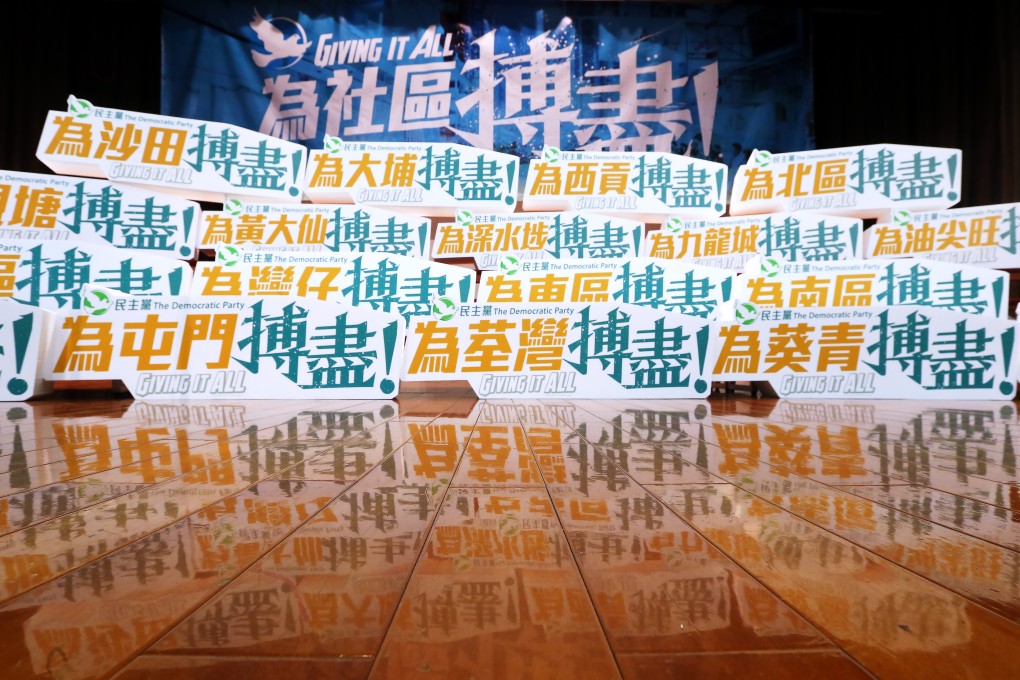Hong Kong's apathy: 66 uncontested seats at district council elections underline weakness of political parties, lack of youth interest
Sonny Lo says given the lack of fully competitive district council elections, Hong Kong's major parties must help themselves by improving their accountability and reaching out to the young

The Democratic Alliance for the Betterment and Progress of Hong Kong has nominated 172 candidates to run - the largest party with the largest number of candidates. The largest pro-democracy party, the Democratic Party, has nominated only 95 candidates. The lack of candidates has been a feature of district council elections since the 1980s.
Overall, political parties do not have the trust of many ordinary citizens, with a few creating an image of relying 'snake soup and vegetarian dinners' to woo the support of elderly residents
Does this point to parties' failure? If parties are defined as political organisations fielding candidates to compete in elections and grasp political power, then they are failing on both fronts. In fact, a political party law doesn't even exist in Hong Kong. And according to the Basic Law, district councils are district-level organisations that do not have political power but are there to advise the government on local affairs.
From Beijing's perspective, if the DAB does not constitute a majority political force in the Legislative Council and the 18 district councils, democratisation in the form of full direct elections to the legislature would mean pro-Beijing forces could not win a majority of seats. If so, the underdevelopment of political parties may arguably be a factor contributing to Beijing's reluctance to allow a fully directly elected legislature in the foreseeable future.

If this is the case, Hong Kong political parties must improve in several ways.
First, they must join hands to push the government to consider formulating a political party law that would give subsidies to parties running for office. The money would have to be returned if a party failed to gain a certain percentage of the vote. A political party law is a must to legalise the operation of parties and stimulate their development.
Second, parties must avoid fighting among themselves as this only generates an image of incompetence and politicking. Many parties are fragmented; some have limited reach or are elitist.